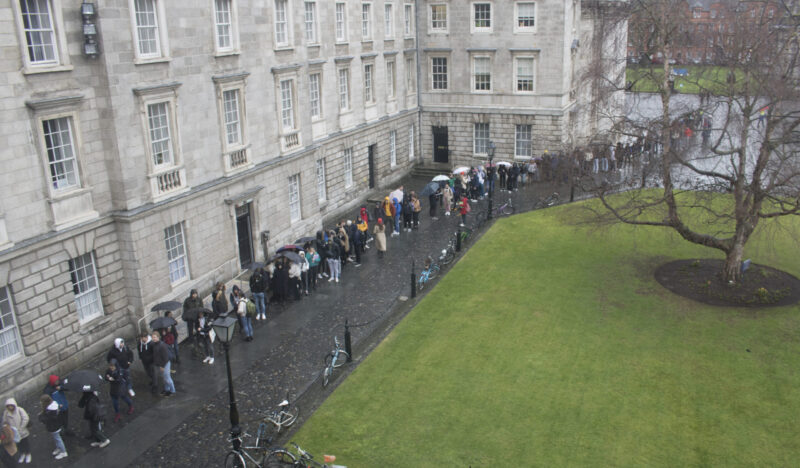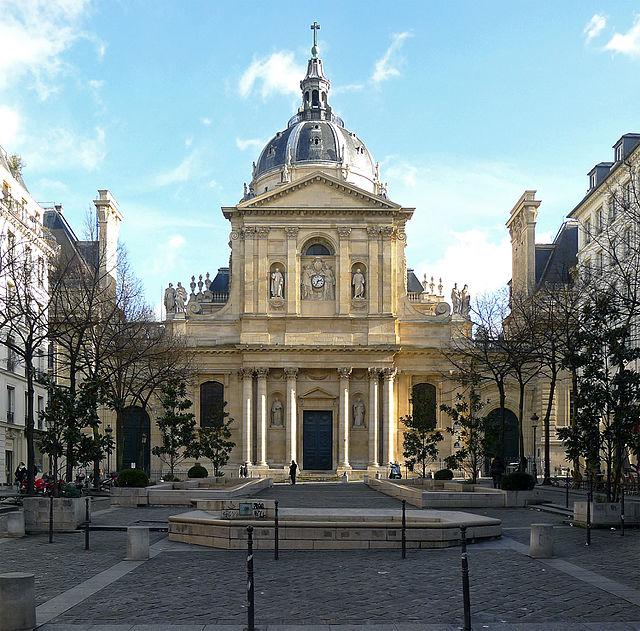Online tickets for Trinity Ball sold out within two hours this year, with a limited number of tickets still going in House Six for those currently queueing for them.
This year’s ticket sales came in behind last year’s, when they’d sold out within an hour of going on sale.
At the time of publishing, there were still a few tickets remaining in House Six, Trinity College Dublin Students’ Union (TCDSU) Ents Officer Judith Robinson confirmed to The University Times. Robinson warned, however, that there’s no point in any more students joining the queue.
In what’s by now a tradition of the ball, some students faced technical issues when applying online for their tickets, as the system struggled to deal with the thousands of students attempting to get a ticket. On social media, the union turned off comments in the discussion section of the ball – typically the site of much complaint from disappointed would-be buyers.
In an email statement to The University Times, Robinson said: “I am delighted with ticket sales, we have sold out again this year which is great. There is a fantastic buzz around campus for the ball!”
Tinie Tempah is to headline this year’s Trinity Ball – which he played back in 2010 – an announcement leaked ahead of time on Sunday when Rejjie Snow, whose appearance at the ball was revealed earlier this month, posted the lineup on Facebook.
Snow posted a photo of the Trinity Ball lineup – which contains already-announced acts Franc Moody and DJ Seinfeld – hours before the announcement was due to take place.
Tickets for the ball were priced again at €91, after they increased from €87 last year.
Last year, Joseph O’Gorman, the secretary of Trinity Ball and the strategic development officer of the College’s Central Societies Committee, wrote in an email to the Capitations Committee that he was “wary of the impact that the cost increase will have on tickets sales”.
O’Gorman – who last Friday announced his candidacy for the Seanad in the University of Dublin constituency, said that the government increase in VAT from 9 to 13.5 per cent had a “direct impact upon the cost of provision of the Ball”.
In the email, O’Gorman also put the price increase down to the rise in cost of security and crowd control, due to changes in the conditions of the ball event license.







